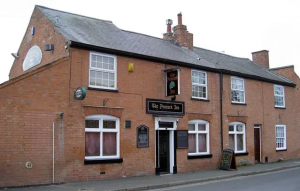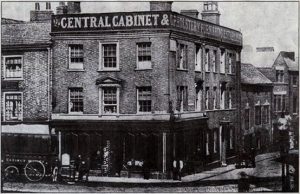Graham Barker unearths some newspaper snippets on his ancestor Jesse Barker – hand-frame knitter and celery grower of Loughborough – in his latest Trading Stories, Working Lives article
Inside a marquee tucked behind the Peacock Inn, Jesse Barker is celebrating winning first prize in the Loughborough Celery Show. It’s a hard-won victory; his seventh attempt at the top prize. In earlier years he’d won a succession of all-comers’ prizes: half a dozen knives and forks, a tin coffee pot, a garden fork, a pepper pot. But now, on a Saturday afternoon in September 1869, he’s finally able to hold aloft the winner’s trophy – a copper kettle – to respectful applause from his fellow gardeners and cheers from his grandchildren.
As the Leicester Daily Mail describes, “There were twenty-one entries, and the exhibition was considered superior to any of the previous ones. The members and friends finished the day by taking supper together, and… were much enlivened by the musical strains of a harp and concertina, with some excellent singing by Mr Biddles.” Jesse was a touch tipsy when he left the Peacock that night, heading around the corner to his home on King Street.
Download the full story here: Jesse Barker, hand-frame knitter and celery grower of Loughborough

